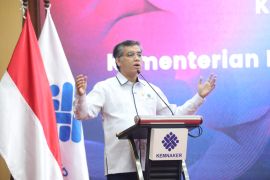"Banks have to raise the interest rates on and deposits. It will force bank to be more selective in extending credits," Economist from Mandiri Sekuritas Destry Damayanti said.Nusa Dua, Bali (ANTARA News) - The increase in Bank Indonesia benchmark interest rate (BI rate) would have short term adverse impact on the banking industry, .economist from Mandiri Sekuritas Destry Damayanti said.
Banks would have a heavier burden with the rising cost of fund as a result but the mid and long term impact would be positive for the economy, Destry said here on Thursday.
"Banks have to raise the interest rates on and deposits. It will force bank to be more selective in extending credits," she said on the sidelines of a meeting of mass media leaders here.
She said banks could not but raise the interest rate on deposits, otherwise, they would lose their depositors.
"No one would put their money in bank with interest of only 5 or 6 percent while the inflation rate is expected to rise to 7 percent," she said.
Meanwhile, banks have to first study the condition before they raise their credit interest rates, she said.
They would not raise the credit interest rate too high amid the sharp competition among the lenders, she added.
"Too high interest rate would discourage borrowers and" this would be unhealthy for banks," she said.
Cost of fund is more sensitive to inflation amid the sharp competition, she said.
Earlier Bank Indonesia announced an increase in BI rate from 5.75 percent to 6 percent after 16 months unchanged.
Bank Indonesia (BI) Governor Agus Martowardoyo said the decision was part of a mixture of policies in response to expectation of an increase in inflation and at the same time to maintain macro economic stability and financial system stability amid global financial uncertainties.(*)
Editor: Heru Purwanto
Copyright © ANTARA 2013










